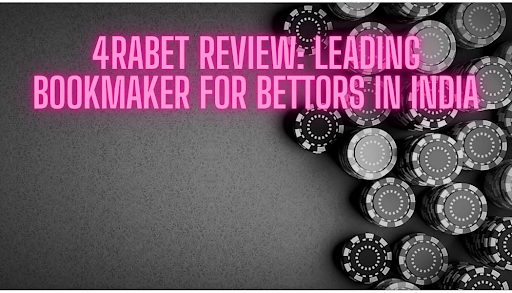It wasn’t long ago that crypto was seen as just digital cash for tech heads. Meanwhile, video games were still mostly about escaping into fantasy worlds. Then something clicked. The two collided—and out came a new beast: the crypto game.
These games aren’t just another genre. They reshape how players interact, earn, and even gamble. The blend of blockchain tech and gaming isn’t a gimmick. It’s a rewire of the entire system. With players owning in-game items as real assets, and with currencies that live beyond the game, we’re in new territory.
It’s a space where crypto casino games pull in thousands of players daily. Where digital tokens act as bets, and winnings can be withdrawn in real money. Crash crypto games add fuel to the fire—intense, fast-paced, and risky as hell. Popular titles like Aviator have become mobile sensations, with players seeking direct access through aviator game apk for seamless gameplay on their devices. All this is happening while game studios explore how to push blockchain deeper into gameplay.
What started as a curiosity has turned into a movement. A crypto game today isn’t just about playing—it’s about investing, gambling, and in many cases, hustling. It’s entertainment with skin in the game.
What Is a Crypto Game?
A crypto game is any video game built on blockchain where players use or earn cryptocurrency. But that’s just the start. These games allow real ownership of items, characters, land, or even the game’s economy. And once you own something, it’s yours—stored on-chain, tradeable, and often sellable on open markets.
Here’s how it works. Instead of storing everything in a company’s server, the game taps into blockchain. Your character’s sword? It’s an NFT. The coins you win in a dungeon? Real tokens. You can transfer them to your wallet, swap them for Bitcoin, or stake them to earn more.
This model breaks the old rules. No more renting items you never truly own. Now, you’re holding assets with actual value. A crypto casino game might let you use those tokens to gamble in roulette or slot-style interfaces, all coded via smart contracts. No dealer, no middleman, just code.
And it’s not only about flashy tokens. Blockchain adds transparency and trust. Every win, every loss, every move is recorded. Developers can’t rig outcomes. Players can verify transactions. That’s a big step forward, especially in the grey world of online gambling.
This shift means crypto games don’t just offer a new style of play—they offer a new way to engage with digital space. You’re not just playing. You’re part of a market.
The Rise of Crypto Casino Games: Entertainment Meets Speculation
Crypto casino games are where things get real. These aren’t your average Vegas knock-offs. They’re powered by blockchain, meaning every spin, roll, or crash is visible, traceable, and fair by design.
Unlike traditional online casinos that require trust in the house, crypto casino games remove the middle layer. Everything runs on smart contracts. That blackjack hand? It’s dealt by a bit of code. The roulette wheel? Controlled by random algorithms you can verify.
But what’s drawing players in isn’t just fairness—it’s freedom. No KYC hoops. No banks. You connect your crypto wallet, place a bet, and the game starts. For many, it’s thrilling, wild, and brutally simple.
The top crypto casino platforms now host dozens of games, from classics to blockchain-born ideas. And the winnings? Paid instantly in crypto. No delays. No questions.
These games live in a space between gambling and gaming. They pull in thrill-seekers, crypto investors, and casual players alike. And in a world where borders blur, they’re accessible globally.
Popular Crypto Casino Games in 2025:
- Tez888.io – Built on the Tezos blockchain, it delivers lightning-fast games with low fees and full transparency. Games like TezDice and TezCrash have gained a cult following for their clean UI, provable fairness, and instant payouts.
- Stake – A well-known platform offering everything from slots to crash games, all fueled by major coins like BTC, ETH, and XRP.
- Bustabit – A pioneer in crash-style betting where players ride the line until it breaks.
- BC.Game – Features provably fair mechanics and a deep list of crypto casino classics.
- Rollbit – Known for its hybrid approach, mixing gaming, trading, and betting in one place.
- Roobet – User-friendly, slick, and fast-growing with a mix of crash, dice, and blackjack.
In 2025, these platforms are more than casinos. They’re hubs where crypto and entertainment meet, fast-paced and unfiltered.
Crash Crypto Games: The Adrenaline-Fueled Trend
Imagine this: a graph rising, the number climbing, your winnings growing. You watch, heart pounding. Any second, the line could crash. You hit cash out—just in time. Or too late. That’s a crash crypto game.
These games are fast. Brutal. Simple to learn, hard to master. You place your bet, watch the multiplier tick up, and decide when to jump ship. Wait too long, and it crashes—everything gone. Cash out early, and you might walk away with a fraction of what could’ve been.
It’s not just about luck. It’s a head game. Every round plays on your nerves. Your gut. Greed and fear locked in a death match. That’s why crash games have exploded. They’re built for short attention spans and big emotions.
They also work perfectly with crypto. Instant bets. Fast payouts. No middleman. Just pure code and reflexes. These games have become a cornerstone of the crypto casino game scene, offering an experience unlike any traditional bet.
“Crash games have tapped into a primal rush. They’re not just gambling. They’re watching fear and greed battle in real time.” — Jonas Kemper, CEO of BlockSpin Studios
It’s easy to see why players flock to these games. They’re addictive. Raw. And thanks to the blockchain, every result is provable. No rigging. Just volatility on full display.
As more crypto games embrace this format, it’s become a symbol of the Web3 gaming era. Fast. Risky. Transparent. And very, very real.
Mechanics Behind the Scenes: How Blockchain Powers Play
A crypto game runs deeper than its graphics or user interface. The real action happens behind the curtain, powered by a mix of smart contracts, cryptographic logic, and decentralized networks.
Let’s start with smart contracts. These aren’t just lines of code. They’re the rules of the game—unbendable, visible to all, and executed without any human hand. When you bet in a crash crypto game, that multiplier isn’t handled by some casino operator—it’s triggered by a contract deployed on the blockchain. No bias, no fiddling. It pays out if you win and burns your tokens if you don’t.
But not everything lives on-chain. Game studios often use a mix: on-chain for key financial interactions like token transactions or NFT trades, off-chain for less critical parts—animations, matchmaking, maybe even the game logic. This hybrid model keeps performance sharp while ensuring the important stuff—your wallet, your bets, your winnings—is tamper-proof.
Then there’s the wallet. It’s not just a storage locker. It’s your login, your ID, your cash register. Every crypto game depends on wallet integration. Whether it’s MetaMask, Phantom, or Ledger, the wallet acts as your bridge into the world of Web3 gaming. With it, you sign transactions, hold tokens, and store your loot.
And don’t forget the tokens. These range from mainstays like ETH and BTC to game-native assets like AXS or SAND. You use them to buy, play, stake, or cash out. They are the blood running through the crypto casino game economy, fueling everything from crash game wagers to NFT skin purchases.
Game Economy: Earning, Spending, and Losing
The economy of a crypto game doesn’t end when the screen powers down. Every move matters. You’re not just earning points—you’re handling value.
Let’s talk P2E. Play-to-earn started as a revolution. You grind, you win, and you walk away with tokens you can sell. But the glory days are gone. Now, only the strong models survive—those with real sinks, real strategy, and balanced token flows.
Tokenomics is the engine here. Some games use dual-token systems. One token for governance, another for rewards. Others go all in with one asset. But if that asset has no use beyond speculation, the game bleeds out. Strong economies build in mechanics like staking (locking tokens for rewards), farming (using tokens to earn more), and burning (removing supply to stabilize value).
Here’s how that looks in practice:
Comparison of Token Utility in Top Crypto Games
| Game Title | Token Type | Utility | Exchangeable |
| Axie Infinity | AXS / Smooth | Breeding, battle rewards | Yes |
| Bustabit | Bitcoin | Crash betting | Yes |
| Decentraland | MANA | Land, avatar upgrades | Yes |
| Stake.com | BTC / ETH etc. | Casino games (slots, crash, poker) | Yes |
These examples show the importance of function. A token without a job is just dead weight. A good crypto game keeps its economy lean, its incentives clear, and its users active.
Opportunities and Pitfalls: Rewards vs. Risks
It’s not all sunshine and Lambos. The same things that make crypto games exciting also make them dangerous.
You can win big. Some players do. A lucky streak on a crash crypto game or a smart flip of a rare NFT can turn into serious money. But for every big win, there are countless losses. Volatility is the name of the game.
There’s also the lure of fast cash. That’s where crypto casino games come in. Provably fair? Yes. Risky? Always. A badly timed click and you’re wiped. No pause button. No second chance. This isn’t for the faint of heart.
On top of that, the legal map is a minefield. Some countries welcome blockchain gaming. Others ban crypto gambling outright. Rules shift quickly. Regulation is coming—it always does—but for now, players move in a grey zone. That can change overnight.
Top Risks to Consider Before Playing a Crypto Game:
- Token volatility: Prices swing hard. Gains can vanish fast.
- Game shutdowns: If devs walk or funding dries up, your assets may become worthless.
- Scams and rugs: Not all projects are honest. Some vanish with your money.
- Legal trouble: Gambling laws differ. What’s allowed in one place might be banned elsewhere.
- Burnout: Many games demand long play hours for decent returns. It’s not always worth the grind.
A crypto casino game might offer freedom and fun. It also comes with landmines. Step wisely.
Future of Crypto Games: Trends, Tech, and Transformation
Where’s all this headed? If 2021 was the birth, and 2023 the adolescent slump, then 2025 looks like the comeback.
AI is making big moves. Developers are using it to build smarter NPCs, craft random storylines, and even balance in-game economies. That means games can feel deeper, less grindy, more alive.
The metaverse is another frontier. Projects like Otherside or The Sandbox are betting big. Virtual land, social hubs, and crypto-powered economies are merging into persistent worlds. It’s not just about gaming anymore—it’s digital lifestyle.
But regulation will play the biggest role. Governments are watching. Taxes, licensing, and consumer protection laws are slowly catching up. Some games will fade. Others will adapt and thrive.
Mass adoption won’t come from hype. It’ll come from clean UI, mobile access, and games that are actually fun—even without tokens. Once the crypto layer fades into the background and the game itself shines, the market will hit its stride.
Conclusion: Should You Join the Crypto Gaming Revolution?
Crypto games aren’t a passing trend. They’re a shift. They’ve changed how we think about ownership, risk, and play. From crash crypto games that test your nerve to massive metaverse projects with sprawling economies, the space is rich with variety.
But it’s not for everyone.
If you love games and understand risk? Dive in. Just know what you’re doing. If you’re after guaranteed profits or a quick win? Stay out. This isn’t a get-rich-quick scheme. It’s a new frontier—with all the beauty and chaos that comes with it.
So, should you join? That’s up to you. Just come in with eyes wide open.
FAQ
Q1: What is a crypto casino game?
A crypto casino game is a gambling-style game that uses cryptocurrency for bets and payouts. It often includes slots, blackjack, dice, or crash mechanics, all powered by blockchain smart contracts.
Q2: Are crash crypto games rigged?
No. If built on blockchain with verified smart contracts, they’re provably fair. That means every round is traceable and tamper-proof.
Q3: Can I really earn money with crypto games?
Yes, but it’s not guaranteed. You can earn by playing, trading, or staking. But many players lose money too—especially in high-risk games like crash or roulette variants.
Q4: Are crypto games legal in my country?
It depends. Some places allow them freely, others restrict crypto gambling. Always check local laws before playing.
Q5: What are the safest crypto games to try first?
Start with well-known titles: Axie Infinity for P2E, Decentraland for exploration, or Stake.com for casino-style games. Look for transparent teams, verified smart contracts, and active communities.


